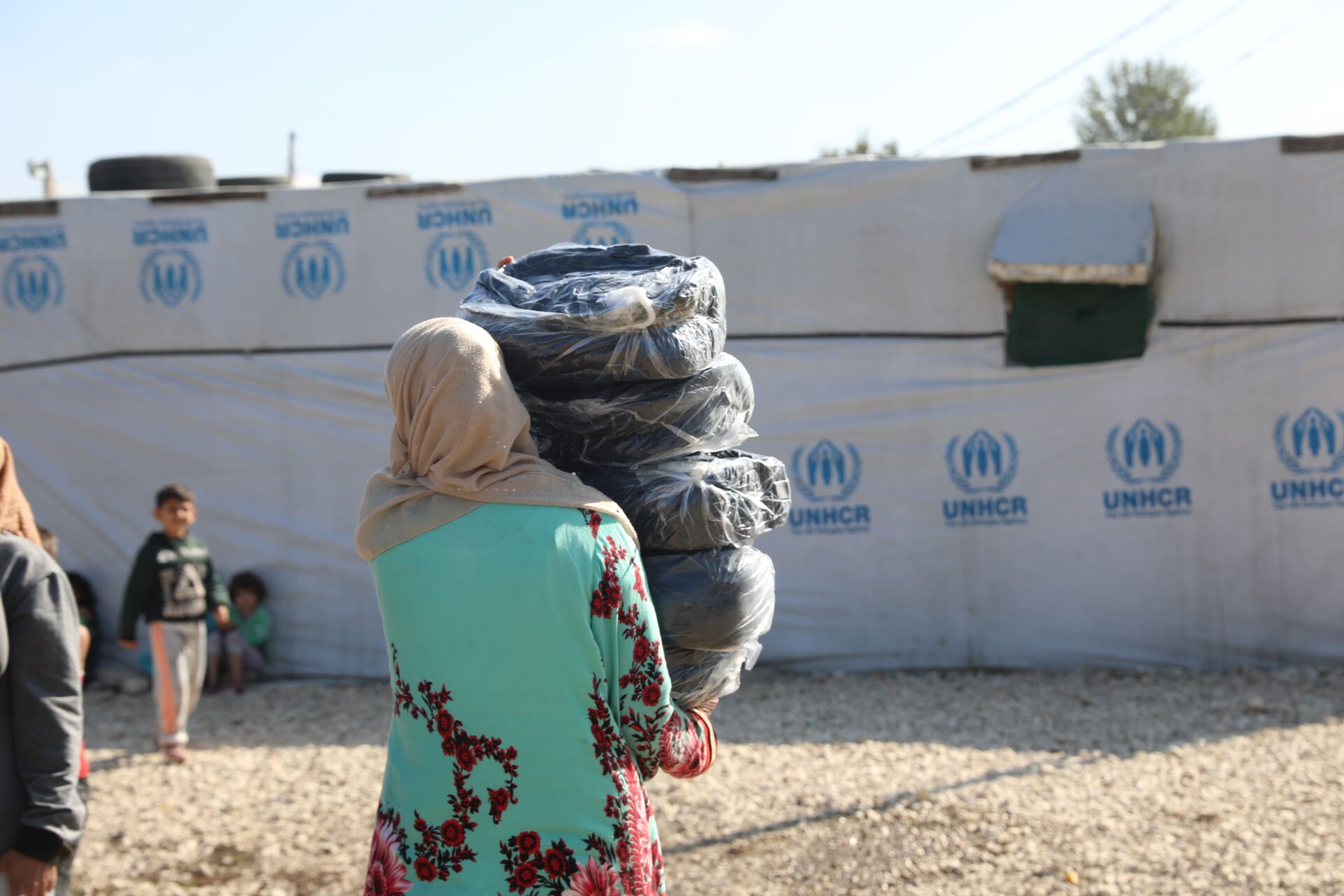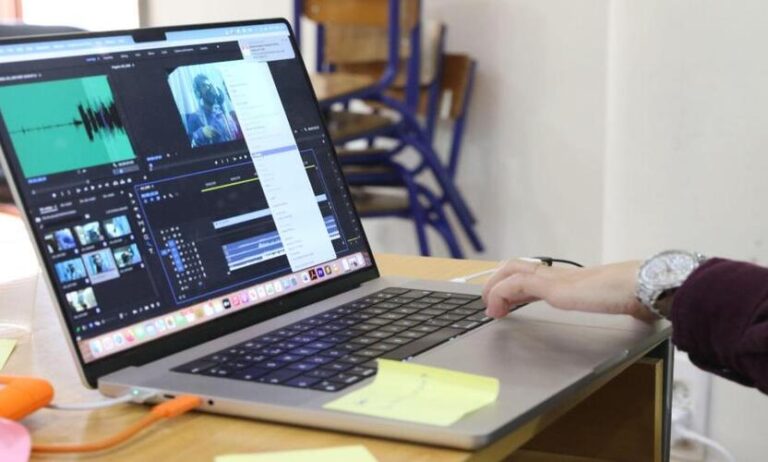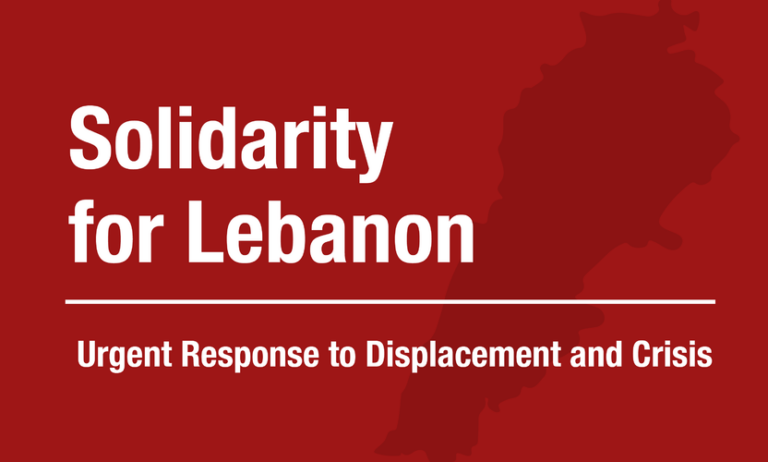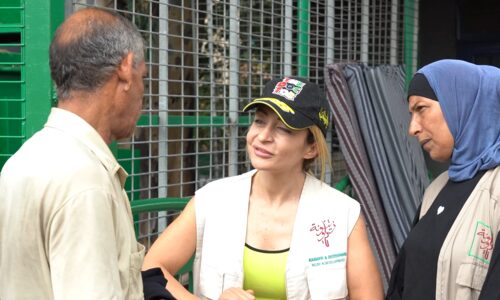Disclaimer: This website is under development. Content and features may change, and some information may be incomplete or inaccurate. Thank you for your patience.
The funding cuts imposed to overseas development aid by the U.S. government have significantly undermined critical protection programs designed to support vulnerable populations, leaving deep and lasting consequences on the community’s well-being and human dignity. We at Basmeh & Zeitooneh (B&Z), like many other Refugee-led Organizations (RLOs) globally, have not been spared from their effects.
Initially, B&Z’s partnership with UNICEF promised transformative changes to their traditional education centers, shifting from standard approaches to innovative, holistic methodologies. These centers, known as “Makani,” were envisioned as dynamic spaces offering comprehensive services ranging from psychosocial support (PSS), education, life skills, and counseling. As Zakia Kahhoul, Protection Technical Manager, stated, “It was a huge opportunity for Basmeh to transform our centers from more traditional education centers to be more up-to-date and playful.” Such centers were designed not merely for basic educational support, such as Early Childhood Education (ECE) or Basic Literacy and Numeracy (BLN), but to foster appropriate child development through diverse learning techniques and skill-building activities, tailored to individual needs and community contexts. However, due to the abrupt funding cuts, these visionary programs were halted, resulting in a significant loss of opportunity for children and families. The cessation of these programs has meant that children and their communities now lack access to critical spaces where they could have developed essential life skills, received emotional support, and participated in community-building activities.
Another severely affected initiative is the Bureau of Population, Refugees, and Migration (BPRM)-funded women’s safe spaces. These spaces were designed as inclusive environments that could comprehensively address Gender-Based Violence (GBV), provide targeted support to Persons with Specific Needs (PWSN), and extend general protection to broader community segments. Zakia highlighted this loss clearly: “When you focus on a child without tackling their environment, it’s like you’re doing very little for that child.” The initial ambition of these programs was to shift from child-specific interventions towards a holistic community-based protection framework, integrating women-led committees and advocating for more comprehensive community participation. The envisioned program was poised to empower women, fostering active advocacy for their needs and creating robust community structures that extended far beyond immediate survival needs.
However, the new restrictive executive orders from the US administration have forced B&Z to significantly scale back these programs. Under these new constraints, the focus has been narrowed strictly to lifesaving, basic assistance, essentially reducing aid to rudimentary support akin to merely providing food and water. Zakia expressed concern about this reductionist approach, noting, “It’s like giving people food so they don’t die out of hunger, but they will die out of hate, discrimination, and other types of violence.” This stripped-down model inherently undermines the fundamental humanitarian principle of dignity. Humanitarian aid, ideally, is not only about survival but about preserving human dignity, actively involving recipients in the decision-making process, and tailoring support to their specific contexts. The funding cuts have eradicated such nuanced, community-driven approaches, leaving participants with standardized, impersonal assistance that fails to meet their complex needs adequately.
This drastic shift has tangible, profound consequences for the communities served by B&Z. Without these specialized interventions, vulnerable populations, women, children, communities, and persons with disabilities, face increased marginalization. The tailored support that recognized their unique needs and facilitated empowerment has been abandoned. Similarly, initiatives intended to support women-led groups can no longer prioritize them specifically, further marginalizing women who already faced systemic barriers.
Moreover, these funding restrictions and policy shifts fundamentally communicate a troubling message to recipients, implicitly reinforcing their marginalization. The executive orders not only reduce aid to a one-size-fits-all model but also undermine community consultations, effectively silencing beneficiaries’ voices in decisions affecting their lives. Consequently, communities experience a profound psychological and emotional impact as they internalize their dehumanization, perceiving themselves as passive recipients rather than active participants in their development and recovery processes. Zakia summarized this concern starkly: “There’s no tailored interventions anymore, no community consultations, no checking with them, humanizing them, listening to them.” This stands in sharp contrast to the principles of empowerment and participatory approaches that are central to ethical humanitarian assistance.
These funding cuts also represent significant opportunity losses for overlooked populations, particularly in marginalized communities such as Shatila Camp, located in the suburbs of Beirut. Communities in these densely populated areas, already struggling with profound poverty and limited access to services, now face exacerbated vulnerabilities due to the scaling back of critical programs. The withdrawal of services not only reduces immediate assistance but also undermines the trust communities place in B&Z. This erosion of trust could lead to a perception that humanitarian organizations are unable or unwilling to fulfill their commitments, thereby creating barriers to future community engagement and cooperation.
In response to this crisis, it is imperative for donors and the international community to reconsider funding priorities urgently. Increased, flexible, and localized funding must be prioritized to ensure grassroots and local organizations can continue to deliver context-specific, dignified aid. Strengthening cooperation among local organizations and grassroots initiatives will also be vital in mitigating the harmful effects of funding cuts, fostering resilience, and ensuring sustained community trust and engagement.



